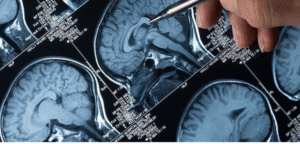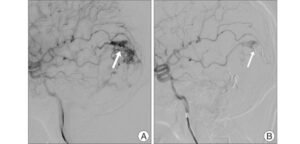Glioma – Types, Symptoms & Specialist Treatment
Glioma is a type of brain tumor that originates from glial cells, which are supportive cells in the brain. These tumors can vary in type and severity and impact different areas of the brain.
Understanding glioma: what it is, its causes, symptoms, and treatment is crucial for managing and treating this condition effectively.
What Causes Glioma?
The exact causes of glioma are not well understood, but several factors may contribute to its development:
- Genetic Mutations: Changes in the DNA of glial cells can lead to the uncontrolled growth of these cells, resulting in glioma.
- Family History: A family history of brain tumors or genetic syndromes may increase the risk of developing gliomas.
- Exposure to Radiation: Previous radiation therapy to the head, often used to treat other cancers, may elevate the risk of glioma.
- Certain Conditions: Genetic conditions such as neurofibromatosis can predispose individuals to gliomas.
While the exact cause is often unknown, understanding these risk factors can help in early detection and preventive measures.
What Are the Symptoms of Glioma?
Symptoms of glioma can vary depending on the tumor’s location and size. Common symptoms include:
- Headaches: Persistent or worsening headaches that may be different from usual.
- Seizures: Unexpected seizures or convulsions that were not previously experienced.
- Cognitive Changes: Difficulty with memory, concentration, or other mental functions.
- Neurological Symptoms: Symptoms such as weakness or numbness in the limbs, vision changes, or difficulty speaking.
- Personality Changes: Altered behavior or mood swings can occur as the tumor affects different brain regions.
If you experience any of these symptoms, it is important to seek medical advice for a thorough evaluation.
How is Glioma Diagnosed?
Diagnosing glioma involves several steps to identify and assess the tumor accurately:
- Medical History and Physical Examination: A detailed review of symptoms and medical history, combined with a neurological exam, helps in initial assessment.
- Imaging Tests: MRI (Magnetic Resonance Imaging) and CT (Computed Tomography) scans visualize the brain and determine the size, location, and extent of the tumor.
- Biopsy: A biopsy involves removing a small sample of tumor tissue for examination under a microscope to confirm the diagnosis and determine the tumor type and grade.
For accurate diagnosis and effective treatment planning, specialized imaging and diagnostic techniques are essential.
What Are the Treatment Options for Glioma?
Treatment for Glioma varies depending on the tumor type, location, and stage. Treatment options include:
Surgery: The primary treatment for many gliomas is surgical removal of the tumor. The goal is to remove as much of the tumor as possible while preserving brain function. For those seeking specialized care, brain stem glioma treatment in Delhi, India, offers advanced surgical options and expert care.
Radiation Therapy: Radiation therapy uses high-energy rays to target and kill cancer cells. It is often used when surgery is not fully possible or as an adjunct to surgery.
Chemotherapy: involves using drugs to kill cancer cells or stop their growth. It may be used in conjunction with other treatments.
Targeted Therapy: This approach targets specific molecules involved in tumor growth, aiming to minimize damage to healthy cells.
The choice of treatment depends on various factors, including tumor type, location, and overall health. Consulting with specialists ensures a personalized treatment plan that addresses individual needs.
Why Choose Us for Your Glioma Treatment?
When you choose us for your glioma treatment, you benefit from our specialized expertise and state-of-the-art technology, ensuring accurate diagnosis and personalized care. Our dedicated team focuses on providing the most effective treatment options tailored to your specific needs, whether you require surgery, radiation therapy, or a combination of treatments. With our commitment to excellence, you can trust us to guide you through every step of your Glioma treatment journey, prioritizing your health and well-being.
Related Blogs & Videos

From Diagnosis to Treatment: What Role Does Neuro-Oncology Play in Enhancing Patient Outcomes?
According to the World Health Organization (WHO), primary brain tumors account for approximately 2% of…
Read Article →
Is Tumor Embolization a Major Surgery?
Tumor embolization, designed to cut off blood supply to tumors delicately, stands out for its…
Read Article →